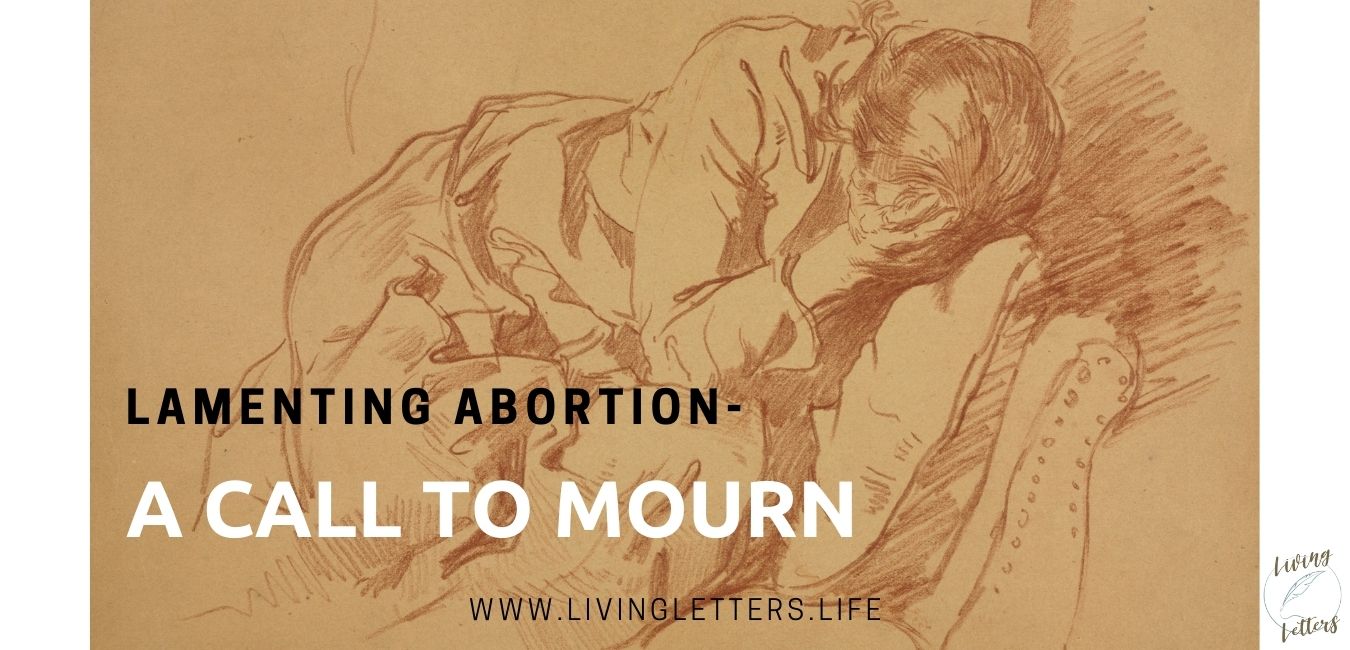
Hear, O women, the word of the LORD,
And let your ear receive the word of his mouth;
Teach to your daughters a lament,
And each to her neighbor a dirge.
For death has come up into our windows;
it has entered our palaces,
cutting off the children from the streets
And the young men from the squares.
–Jeremiah 9:20-21
During the time of Jeremiah, it was the women who wrote and sang dirges when tragic events occurred, including after deaths in the community. They were the ones who led the processions, and women trained their daughters to carry on these practices to succeeding generations. “Wailing women not only had to be able to draw on the reservoir of lament handed down through the generations, but they also had to adapt these laments to suit the particular need of the current situation,” writes L. Juliana M. Claassens in her book: Mourner, Mother, Midwife: Reimagining God's Delivering Presence in the Old Testament (Westminster John Knox Press, 2012).
“ Indeed, 'death has come up into our windows; it has entered our palaces, cutting off the children from the streets and the young men from [their very lives].' ”
In this passage from Jeremiah, the prophet was telling the women to prepare a lament because of Judah's constant turning from God. The nation's behavior was calling down God's judgement against them, equating judgement with death. How appropriate these words of Jeremiah remain for our present-day American culture which allows the evil of abortion to be an everyday occurrence. Indeed, “death has come up into our windows; it has entered our palaces, cutting off the children from the streets and the young men from [their very lives].”
Lamenting the murder of 62 million unborn children should be something every Christian practices. This is an unspeakable horror. Death has entered the wombs of mothers. Just as the women of Judah were the leaders and organizers of the death processions, so the church should be the lamenters in a world trying hard to ignore the repercussions of what is happening. Our wailing should be a noticeable distraction.
Mark Vroegop writes in his book, Weep with Me (Crossway, 2020), “Depravity is more than an individual concern. Injustice can be framed by statute. Sin slithers its way into the halls of power, legislation and our culture.” So it has in legalized abortion, and therefore it is much “more than an individual concern.” Abortion has affected millions of Americans and their families, whether it is acknowledged openly or done in secret. Those being slaughtered cannot raise their voices. They can call on no one to lament their all too brief life spans or to stop the slaughter.
Just what is a lament? How does one lament? Webster defines a lament as “a passionate expression of grief” and the action of lament as the action of mourning. “Lament starts with a humble posture,” Vroegop writes, “It communicates: I'm here. I'm sad too.”
“ But God is not blind or deaf. He sees each life being torn apart. He feels their pain. He hears their cries. ”
Lamenting aborted lives is not only sad, but it should make us angry, as should evil perpetrated on all human life. This Psalm expresses it well and I'm quoting it here as a lament we can all join in:
O Lord, God of vengeance,
O God of vengeance, shine forth!
Rise up, O judge of the earth;
repay to the proud what they deserve!
O Lord, how long shall the wicked,
how long shall the wicked exult?
They pour out their arrogant words;
all the evildoers boast.
They crush your people, O Lord,
and afflict your heritage.
They kill the widow and the sojourner,
and murder the fatherless;
and they say, “The Lord does not see;
the God of Jacob does not perceive.”
—Psalm 94:1-7
But God is not blind or deaf. He sees each life being torn apart. He feels their pain. He hears their cries. We are reminded numerous times throughout scripture that this is so. And in this Psalm as well, verses 8-11:
Understand, O dullest of the people!
Fools, when will you be wise?
He who planted the ear, does he not hear?
He who formed the eye, does he not see?
He who disciplines the nations, does he not rebuke?
He who teaches man knowledge—
the Lord—knows the thoughts of man,
that they are but a breath.
In this knowledge there is hope. We can be assured all will be made right. But as Rosaria Butterfield writes in her book The Gospel Comes with a House Key (Crossway, 2018), “[Jesus] knows that grief and lamentation are vital to the soul.” That a time of mourning is necessary. Not just for the parents who have lost their children, but for all of society who will never know those 62 million lives, witness their potential, or enjoy their legacies.
“ Memorials have been erected and days of remembrance instituted to honor the tiny lives lost. ”
Butterfield's comments are referring back to Luke 24 when Jesus comes upon two disciples on the road to Emmaus, lost in grief and full of questions about Jesus' death. Butterfield writes, “So he accompanies them in their suffering. And we need to do the same.” We need to do the same with mothers who act in haste and are made to live in regret and grief afterwards. The church must stand beside the fathers who watched with frustration, anger, and grief as their children were denied them. We must listen to their voices and weep with them for their lost children.
Memorials have been erected and days of remembrance instituted to honor the tiny lives lost. Here is a link that lists them all state by state: http://abortionmemorials.com/index.php. I encourage you to visit those near you. One of the most meaningful experiences in which I was able to honor the life of my child lost to abortion, was to stand with other like mothers at an after-abortion care retreat and light a candle in my child's memory.
We must be the Church, God's children, who trust that the Lord with rise up against the evil that is falsely portrayed to our culture as a human right. He hears our lament and we have experienced His help time and time again in our lives. We can trust him now! Read the concluding verses (16-23) of this Psalm:
Who rises up for me against the wicked?
Who stands up for me against evildoers?
If the Lord had not been my help,
my soul would soon have lived in the land of silence.
When I thought, “My foot slips,”
your steadfast love, O Lord, held me up.
When the cares of my heart are many,
your consolations cheer my soul.
Can wicked rulers be allied with you,
those who frame injustice by statute?
They band together against the life of the righteous
and condemn the innocent to death.
But the Lord has become my stronghold,
and my God the rock of my refuge.
He will bring back on them their iniquity
and wipe them out for their wickedness;
the Lord our God will wipe them out.
We can only trust God for the rest of the story. Now we only know in part. The part we know makes us hurt badly, makes us angry. Yet, Butterfield remarks as she continues writing about Jesus ministering to the travelling disciples, “Jesus, after hearing their side of the story, speaks words of grace, words that tell the whole story…And the whole story is one of multi-directional hope—of past and present and future, of what will come to pass, and of what must be fulfilled in order for hope to manifest.”
“ God's righteous plan will come to pass. ”
We will see the end of the story. God's righteous plan will come to pass. Meanwhile, give in to lament.
My soul continually remembers it
And is bowed down within me.
But this I call to mind,
and therefore I have hope.
–Lamentations 3:20-21
I understand how easily lament over abortion can turn to rage as it seems to continue unstopped year after year. I close with this quote from Ann Voskamp, from her book The Broken Way (Harper-Collins, 2016). “Lament's not a meaningless rage, but a rage that finds meaning in His outrageous love. Lament is an outrage…that still trusts in God's good outcome. Lament's this articulation of the ache at God's abandonment, then an acquiescence to His ache, and finally an abandonment to His will. Lament carries brokenness in its hands straight into the heart of God and asks for His arms.”


Send Me A Message